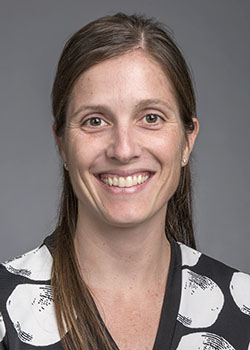Jul 5, 2021 Allison MadarLegal History
In Race, Slavery, and the Problem of Numbers in Early New England: A View from Probate Court, Gloria McCahon Whiting makes significant contributions to the study of slavery in seventeenth- and eighteenth-century New England. She offers new insights into who made up that labor force, as well as into scholarly debates regarding the utility of quantitative analysis for historians of slavery.
Whiting examines volumes upon volumes of seventeenth- and eighteenth-century probate sources to better understand who lived and labored in Suffolk County, Massachusetts. In this, “the wealthiest and most populous county in New England,” Whiting argues that not only were indentured servants “supplanted early on by a near-complete reliance on African slavery,” but also that local Native populations “never provided a significant source of bound labor in the area.” (P. 407.) The first part of her argument is not one with which most scholars would take issue. Her assertion that local Native populations never made up a significant proportion of the enslaved labor force in the region, however, is more surprising. This argument challenges the scholarship of historians such as Margaret Newell, Wendy Warren, Jared Hardesty, and Linford Fisher, who have argued that large numbers of enslaved Natives played an important role in New England’s labor force well into the eighteenth century. Continue reading "The ‘Problem’ of Numbers"
Jul 2, 2021 Margo BagleyIntellectual Property Law
Sean Seymore,
Unclean Patents, 102
B.U. L. Rev. __ (forthcoming, 2022), available at
SSRN.
The 2018 Federal Circuit Gilead Sciences v. Merck & Co. decision is one of the rare patent cases in which a court has applied the unclean hands doctrine to withhold a remedy for infringement. Sean Seymore used this case as a launching point for a deeper and more expansive reconception of the role of the unclean hands doctrine in patent law. He suggests that a range of pre-issuance malfeasance by the patentee, not just inequitable conduct before the USPTO, should preclude relief for the offending plaintiff against all defendants.
The doctrine of unclean hands is best known in patent law as the origin of the inequitable conduct defense, which renders patents obtained from the USPTO through materially deceptive behavior permanently unenforceable against anyone. Unclean hands, however, is both broader and narrower than inequitable conduct. It is not limited to misconduct in patent prosecution, but it only prevents the patentee from enforcing the patent against the particular defendant in the action involving the misconduct; other defendants are fair game. Continue reading "Dirty Hands, Dead Patent?"
Jul 1, 2021 Kevin CopeInternational & Comparative Law
T. Alexander Aleinikoff and Leah Zamore’s compact-but-ambitious new book, The Arc of Protection: Toward a New International Refugee Regime, seeks to transform the international refugee system by proposing a set of legal reforms centered on redistributing responsibility northward, increasing mobility, and better enforcing rights. The authors’ reform vision was developed through decades of research and practice experience.
The legal-political discourse on refugees in the United States focuses largely on disputes over quantities and definitions. How many refugees should be admitted each year: 50,000, 125,000, or (as in fiscal year 2018) 62? Should gang- and domestic-violence be considered persecution and thus valid grounds for asylum? The ways in which these issues are resolved can mean life or death for many displaced people. But even granting all of the reforms that domestic refugee advocates seek would protect only a small fraction of the world’s forcibly displaced. The great majority of the approximately 27 million refugees would still be trapped in poverty in the Global South – effectively confined to underfunded border camps or to urban areas – in either case, largely blocked from the formal economy and from effective redress of rights violations. Continue reading "Rethinking Responsibility for Refugees"








